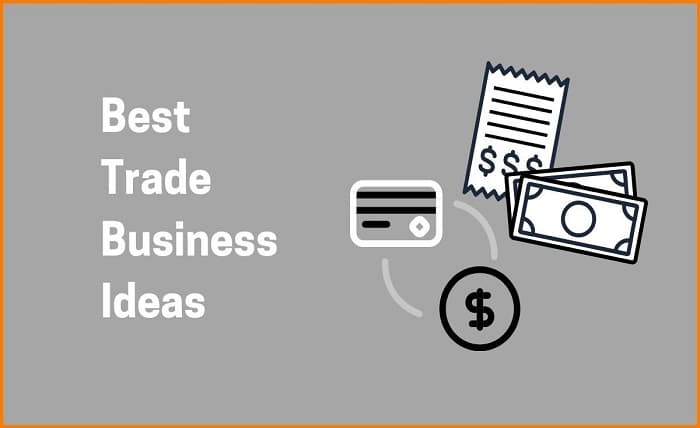Trading Business Ideas: Exploring Profitable Opportunities

Are you an aspiring entrepreneur looking to start a trading business? Trading can be an exciting and lucrative venture for those with a keen interest in the financial markets. In this article, we will explore a variety of trading business ideas that can help you get started on your entrepreneurial journey. Whether you have prior experience or are a complete beginner, these ideas will provide you with valuable insights and inspiration to embark on your trading adventure. Trading involves the buying and selling of financial instruments with the aim of making a profit. It requires a deep understanding of market dynamics, risk management, and the ability to analyze and interpret financial data. Before delving into specific trading business ideas, it is essential to develop a solid foundation in trading principles and strategies. Education and continuous learning will play a crucial role in your success as a trader.
Day Trading: Capitalize on Short-Term Market Fluctuations
Day trading involves executing trades within a single trading day, taking advantage of short-term price movements. Day traders closely monitor the market and make quick decisions based on technical analysis and market indicators. It requires discipline, focus, and the ability to manage risk effectively. Day trading can be done in various markets, such as stocks, forex, and cryptocurrencies.
Swing Trading: Profiting from Medium-Term Trends
Swing trading focuses on capturing medium-term price trends and typically involves holding positions for several days to weeks. Traders use technical analysis to identify potential entry and exit points based on chart patterns and market indicators. Swing trading requires patience and the ability to ride out short-term fluctuations while keeping an eye on the bigger picture.
Options Trading: Leveraging Strategies for Higher Returns
Options trading provides traders with the right, but not the obligation, to buy or sell an underlying asset at a predetermined price within a specified time period. This flexibility allows traders to implement various strategies to profit from market movements. Options trading can be complex and requires a good understanding of options pricing, volatility, and risk management.
Forex Trading: Exploring the Global Currency Market
Forex trading involves buying and selling currencies in the foreign exchange market. It is the largest and most liquid market globally, with trillions of dollars traded daily. Forex traders aim to profit from fluctuations in currency exchange rates. Understanding macroeconomic factors, geopolitical events, and technical analysis is crucial in forex trading.
Cryptocurrency Trading: Embracing the Digital Revolution
Cryptocurrency trading has gained significant popularity in recent years. It involves buying and selling digital currencies like Bitcoin, Ethereum, and Litecoin. Cryptocurrency markets are highly volatile, providing ample opportunities for traders to profit. However, it is important to stay updated on regulatory developments and security measures when trading cryptocurrencies.
Commodity Trading: Investing in Physical Assets
Commodity trading involves buying and selling physical goods such as gold, oil, wheat, and natural gas. Traders can speculate on price movements or use commodities as a hedge against inflation. Commodity markets are influenced by factors like supply and demand, geopolitical events, and weather conditions. Thorough research and understanding of the specific commodity market are essential for success.
Stock Trading: Buying and Selling Company Shares
Stock trading is one of the most well-known forms of trading. It involves buying and selling shares of publicly listed companies on stock exchanges. Stock traders analyze company fundamentals, financial statements, and market trends to make informed investment decisions. Diversification and risk management are key considerations when trading stocks.
Futures Trading: Speculating on Future Price Movements
Futures trading involves buying or selling contracts that obligate traders to buy or sell an asset at a predetermined price on a specified future date. Traders use futures contracts to speculate on price movements, hedge against risks, or lock in future prices. Futures markets exist for various assets, including commodities, currencies, and stock market indices.
Algorithmic Trading: Automating Your Trading Strategies
Algorithmic trading, also known as algo trading or automated trading, utilizes computer algorithms to execute trades based on predefined rules and conditions. Traders develop algorithms that automatically analyze market data, identify trading opportunities, and execute trades without human intervention. Algorithmic trading can provide speed, precision, and efficiency in executing trades.
Social Trading: Following Successful Traders
Social trading platforms allow traders to follow and copy the trades of successful traders. It enables novice traders to learn from experienced traders and potentially replicate their success. Social trading combines social networking with trading, fostering a community of traders who share ideas, insights, and strategies.
E-commerce Trading: Selling Products Online
E-commerce trading involves setting up an online store and selling products to customers. It offers opportunities to source products from suppliers and sell them through various online platforms. E-commerce traders need to focus on product selection, marketing, customer service, and logistics to ensure a successful venture.
Sports Trading: Applying Trading Principles to Sports Events
Sports trading involves using trading strategies and principles in the context of sports events. Traders analyze sports data, odds, and market dynamics to identify mispriced bets and arbitrage opportunities. Sports trading requires a deep understanding of sports and the ability to interpret data to gain an edge over the market.
Peer-to-Peer Trading: Facilitating Direct Transactions
Peer-to-peer (P2P) trading platforms connect buyers and sellers directly, eliminating the need for intermediaries. P2P trading can be applied to various asset classes, such as cryptocurrencies, digital goods, and even services. It provides a decentralized and efficient way to trade, giving individuals more control over their transactions.
Conclusion
Starting a trading business can be an exciting and rewarding endeavor. With the right knowledge, skills, and mindset, you can explore various trading business ideas and find the one that suits your interests and goals. Remember to continuously educate yourself, develop robust trading strategies, and manage risks effectively. Stay updated on market trends, embrace innovation, and adapt to changing market conditions to thrive as a trader.